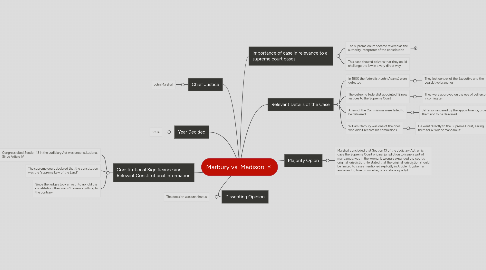Marbury vs. Madison
by Leigh Lytle


1. Year Decided
1.1. 1804
2. Chief Justice
2.1. John Marshall
3. Dissenting Opinion
3.1. The decision was unanimous
4. Constitutional Significance and Relevant Constitutional Information
4.1. Congress cited Section 13 in the Judiciary Act was unconstitutional. Since Article IV
4.1.1. The supreme court has original jurisdiction to issue a writ of mandamus
4.2. The supreme court declared that the constitution was the "supreme Law of the Land"
4.3. Since the judges took an oath to uphold the constitution, the couldn't review anything to the contrary
5. Importance of case in relevance to all supreme court cases
5.1. The supreme court became revered as the authority interpreter of the constitution
5.1.1. New node
5.2. This case showed citizens that they could challenge the law in a very direct way.
6. Relevant Details of the Case
6.1. In 1800 the federalist (John Adams) were defeated
6.1.1. They lost control of the Executive and the Legislative branches
6.2. The outgoing federalist appointed 12 new justices to the Supreme Court
6.2.1. They were approved on the eve of Jefferson's incoming term
6.3. A few of the Commisions were failed to be delivered
6.3.1. Jefferson,angered by the appointments, ordered them not to be delivered
6.4. William Marbury was one of the ones who didn't receive his commisions
6.4.1. He went directly to the Supreme Court, asking them for a "writ of mandamus"
6.4.1.1. a writ of mandamus is an order for an official to do something
